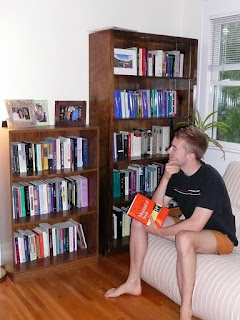Remembering Peter Euben

Being hooded by Peter, May 2010 “Hello, this is Peter Euben from Duke University.” I can still recall the Bronx accent, the calm delivery, the unhesitating friendliness. I was sitting in my cubicle at Cadwalader, Wickersham, and Taft on Maiden Lane a few blocks from Wall Street. Peter sat, I imagine, in the Perkins Library Building office on Duke’s campus, where he often held long office hours amid piles of books and papers towering towards the third floor eves. A narrow leaded window overlooked the Chapel green and its patinaed statue of James B. Duke. In that first conversation, which took place before I ever met Peter, I experienced his interest in others as well as his strategic modesty. Despite my having so clearly advertised myself as a Straussian with Continental interests – those were the days! – Peter inquired about my thesis, listened to my interpretation of Plato’s theory of education, asked the appropriate questions. When the dialogue lulled, ...

